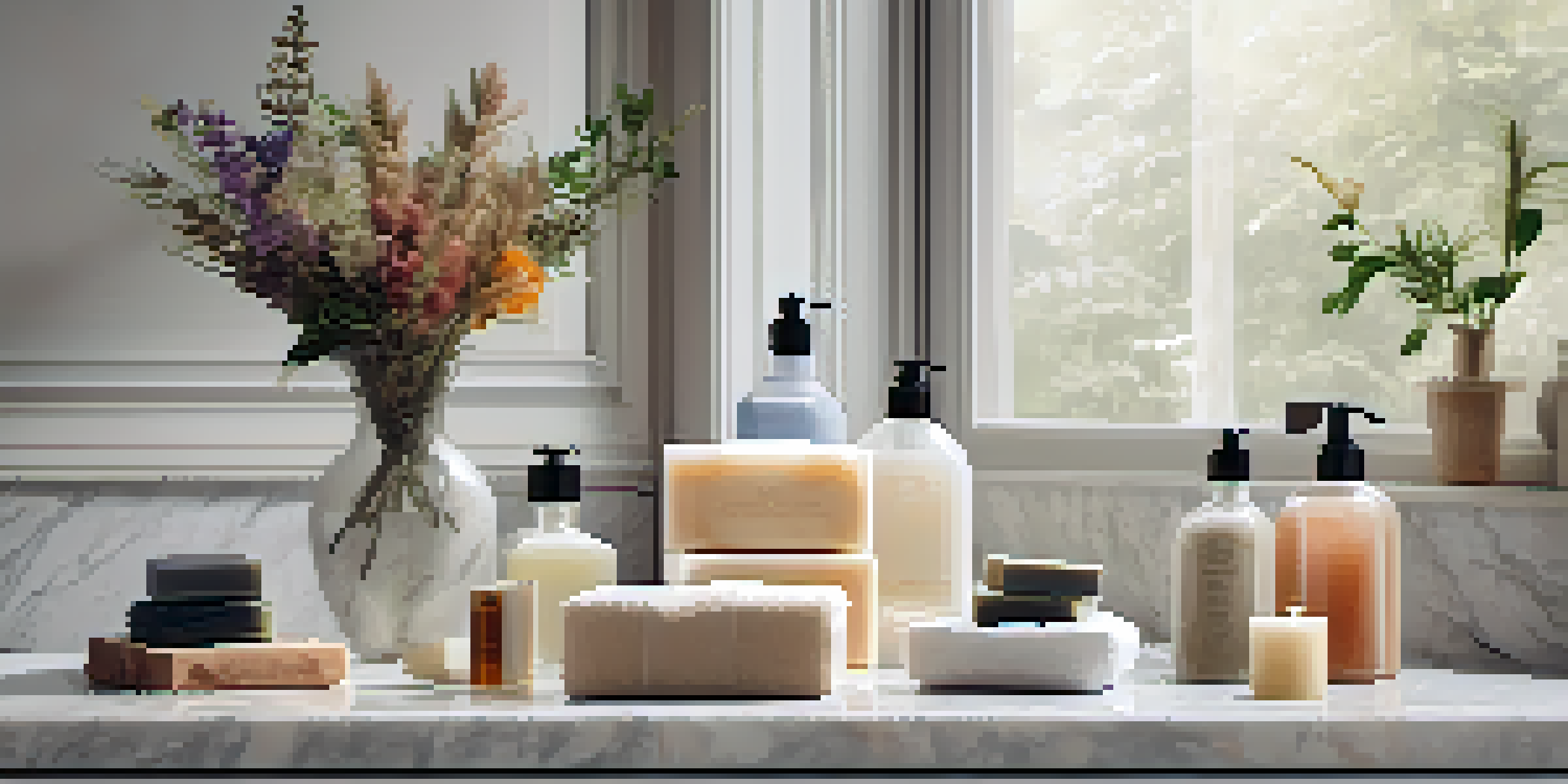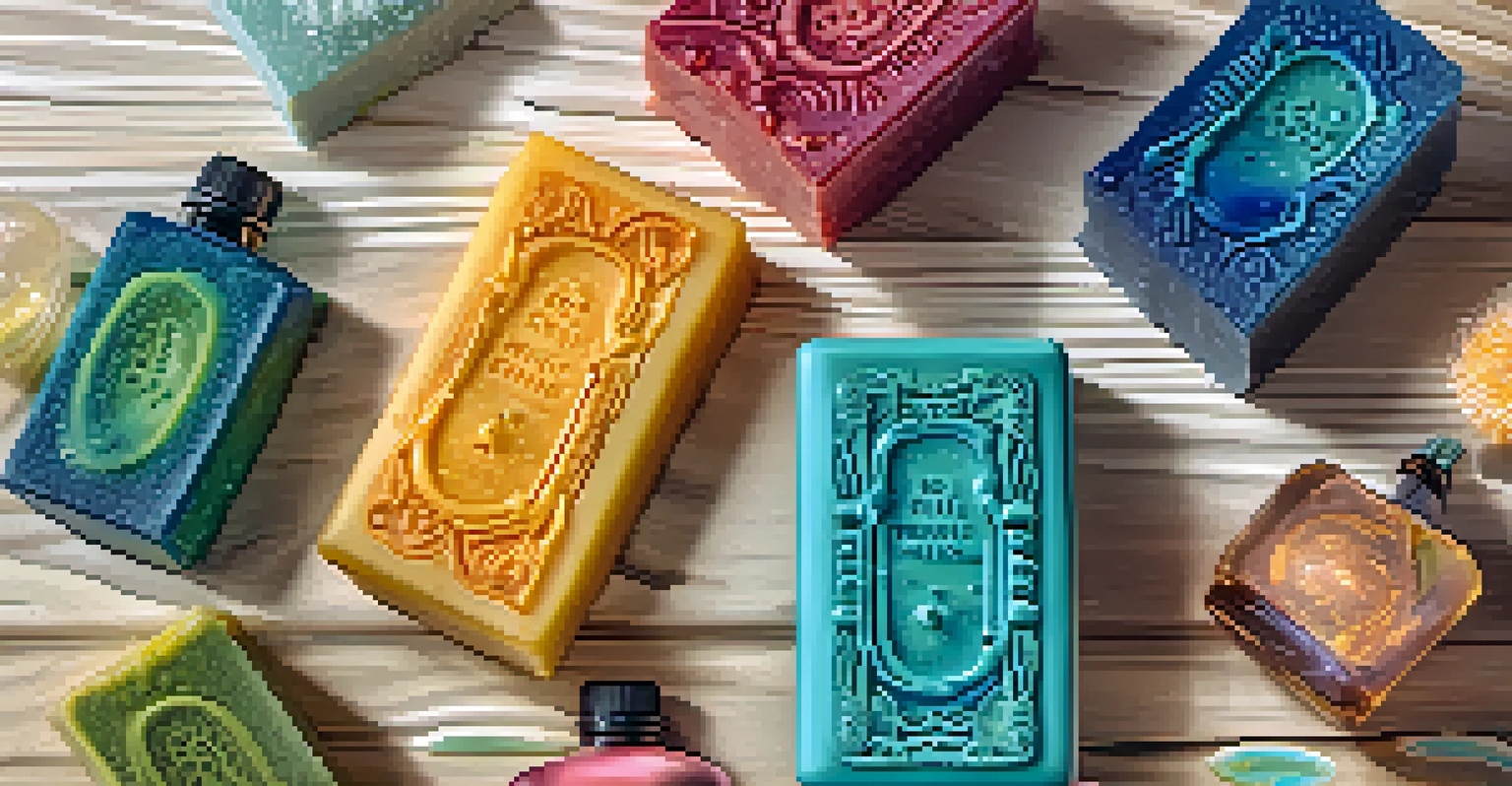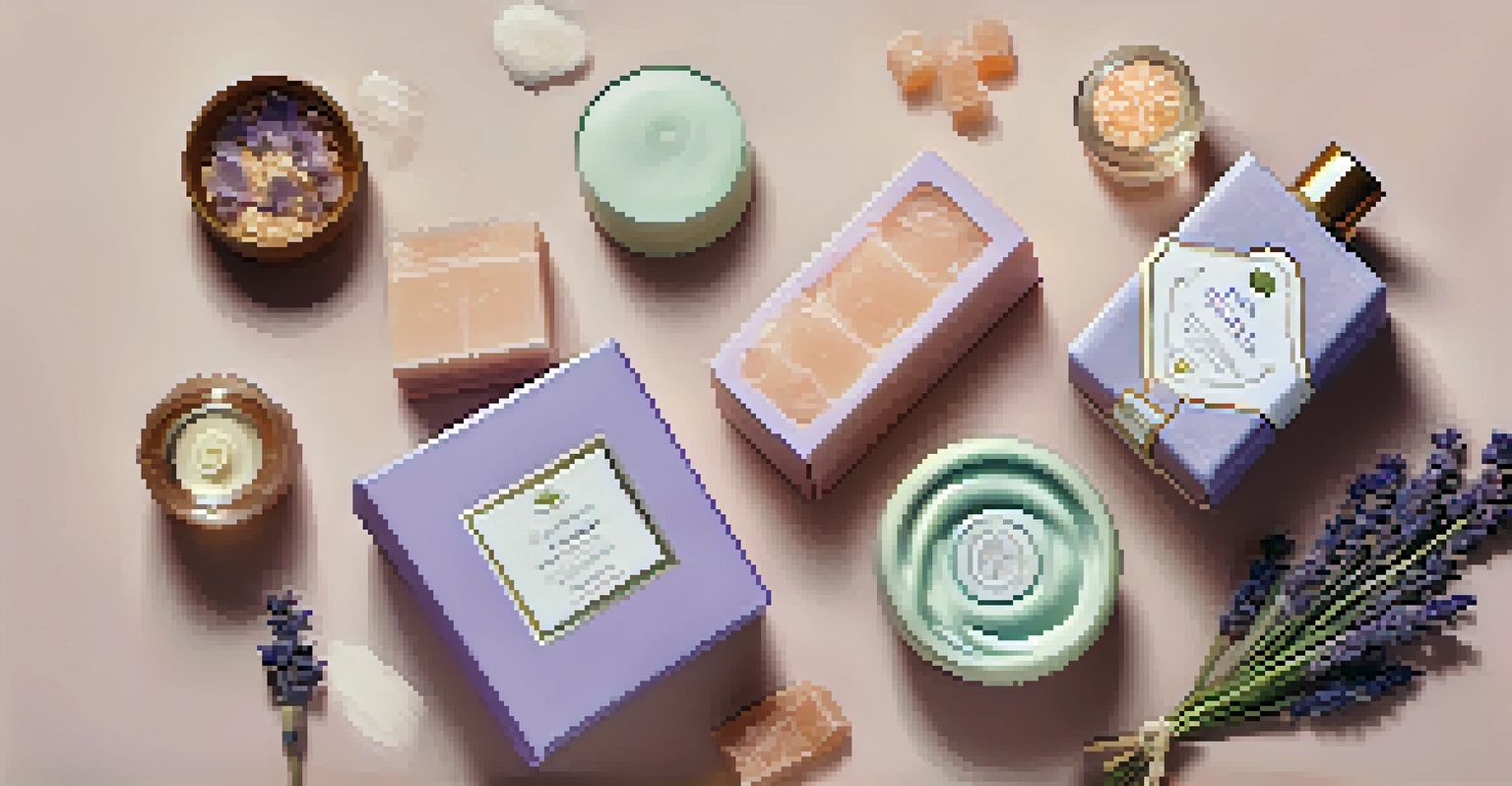The Cultural Significance of Soap in Luxury Markets

Understanding the Historical Roots of Soap
Soap has been around for thousands of years, with origins tracing back to ancient Babylon around 2800 BC. It started as a practical solution for cleaning, but over time, it evolved into a symbol of luxury and self-care. The process of making soap, especially with the introduction of essential oils and luxurious ingredients, transformed it into not just a necessity but a coveted item.
Soap is to the body what laughter is to the soul.
In medieval Europe, soap became a product associated with cleanliness and health, often linked to the wealthy classes who could afford quality ingredients. This historical context shows that even then, soap held a status that was tied to both hygiene and affluence. Today, luxury soaps continue this tradition by offering exclusive blends and artisanal craftsmanship.
As we explore the world of luxury soaps, it’s fascinating to see how this simple product has transcended its basic function to become a cultural artifact. The journey from necessity to luxury item illustrates how society's values shape our perception of everyday products.
Soap as a Status Symbol in Luxury Markets
In many cultures, the type and quality of soap one uses can signal social status. Brands often market their soaps not just as cleaning products but as indulgent experiences that elevate a person’s daily routine. This has led to a rise in high-end soap brands, which offer unique formulations that promise both beauty and health benefits.

For instance, artisanal soaps made with rare ingredients such as Himalayan salt or exotic botanical extracts are often sold at premium prices. Consumers are drawn not just to the product but to the lifestyle it represents—one of luxury, self-care, and exclusivity. The branding plays a crucial role in how these soaps are perceived and valued in the market.
Soap's Evolution into Luxury Items
Soap has transformed from a basic cleaning product into a luxurious item symbolizing self-care and status.
This transformation of soap into a status symbol showcases how consumer behavior is influenced by cultural narratives. People aren’t just buying soap; they are investing in an image and a lifestyle that reflects their values and aspirations.
The Role of Branding in Luxury Soap Markets
Branding is pivotal in the luxury soap market, often dictating consumer choices. Luxury brands leverage storytelling to create an emotional connection with their products, making consumers feel like they are part of an exclusive community. This strategy elevates the perception of soap from a mundane item to a treasured possession.
Luxury must be comfortable, otherwise it is not luxury.
For example, brands like L'Occitane or Jo Malone employ elegant packaging and sophisticated marketing campaigns to enhance their appeal. They often tell stories about their ingredients, sourcing, and the artisans behind their products, which adds to the allure. The more unique the narrative, the more desirable the product becomes.
Ultimately, effective branding transforms soap into an experience. It’s not just about cleaning; it’s about pampering oneself and indulging in a luxurious ritual, which is a key component of its cultural significance.
Sustainability Trends in Luxury Soap Production
As consumers become increasingly eco-conscious, sustainability has emerged as a crucial aspect of luxury soap production. Many luxury brands now emphasize their commitment to environmentally friendly practices, using organic ingredients and sustainable packaging. This trend reflects a broader cultural shift towards responsible consumption.
For example, some brands source their ingredients from fair-trade suppliers or support local communities, creating a narrative of social responsibility. This not only appeals to ethical consumers but also enhances the brand's reputation in a competitive market. The integration of sustainability into luxury soaps allows consumers to indulge without guilt.
Sustainability in Luxury Soap
Today's luxury soap brands increasingly prioritize sustainability, appealing to eco-conscious consumers who value ethical production.
Thus, the cultural significance of soap in luxury markets now includes a focus on sustainability, aligning luxury with ethical values. This shift reshapes the consumer's relationship with the product, turning it into a symbol of both indulgence and responsibility.
Cultural Rituals Surrounding Soap Use
Across various cultures, soap often plays a central role in rituals and traditions. For instance, in some societies, the act of washing with specific soaps is part of cleansing rituals, symbolizing purification and renewal. This cultural significance adds depth to the luxury soap market, as consumers seek products that resonate with their heritage.
Moreover, luxury soaps are often incorporated into self-care routines, emphasizing the importance of personal well-being. The act of using a luxurious soap can be a meditative experience, offering a moment of tranquility in a fast-paced world. This ritualistic aspect elevates the product beyond its practical use, making it a cherished part of the consumer's lifestyle.
In this way, the cultural rituals surrounding soap use highlight its importance in daily life. Luxury soaps become more than just products—they transform into essential tools for personal reflection and cultural expression.
The Influence of Social Media on Soap Trends
Social media has dramatically reshaped the landscape of the luxury soap market, turning everyday products into coveted items. Platforms like Instagram and TikTok allow brands to showcase their products through visually stunning content, creating a buzz that traditional advertising can’t match. Consumers are now influenced by aesthetics just as much as quality when choosing luxury soaps.
Influencers play a significant role in this trend, as they often share their experiences and routines involving luxury soaps. Their endorsements can propel a brand to new heights, making them a symbol of aspiration and desirability. This dynamic has created a culture where consumers eagerly seek out the latest trends in luxury soaps, sometimes even before they hit the market.
Social Media's Impact on Soap Trends
Social media platforms significantly influence luxury soap trends, making aesthetics and influencer endorsements key factors in consumer choices.
Thus, social media not only promotes luxury soaps but also fosters a community around them. It encourages consumers to share their own experiences, creating a feedback loop that keeps brands responsive and relevant in a fast-changing market.
Future Trends in Luxury Soap Markets
Looking ahead, the luxury soap market is likely to see continued innovation and adaptation. As consumer preferences evolve, brands will need to stay ahead of trends, focusing on personalization and unique experiences. Customizable soaps, where consumers can choose scents and ingredients, could become a popular offering.
Additionally, the integration of technology in shopping experiences, such as augmented reality (AR) for virtual product trials, could reshape how consumers interact with luxury soap brands. This would provide a more immersive shopping experience, allowing consumers to engage with the product before making a purchase.

Ultimately, the future of luxury soap markets will be about blending tradition with modernity. By honoring the cultural significance of soap while embracing new technologies, brands can create compelling experiences that resonate with consumers for years to come.